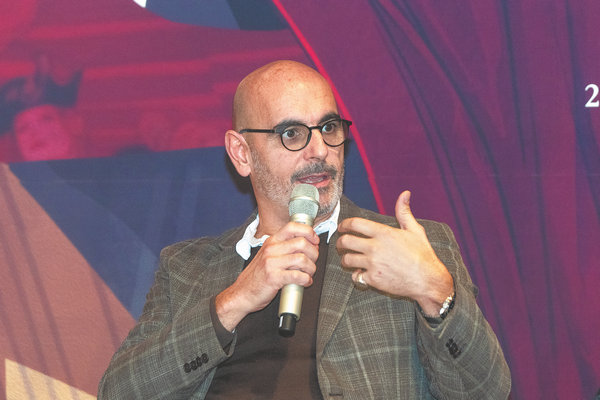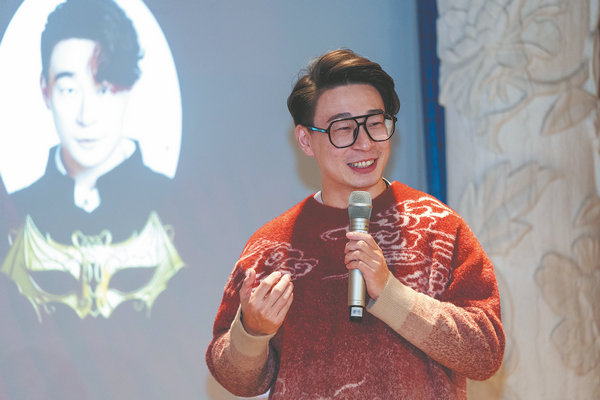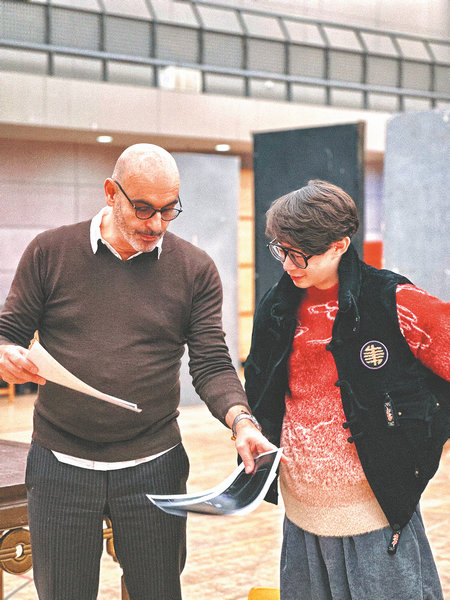Strauss classic gets modern take
Chinese production brings beloved operetta subtly up to date to extend appeal to contemporary audiences, Chen Nan reports.
By Chen Nan | China Daily | Updated: 2024-11-14 07:29

Set in Vienna in the late 19th century, the plot of Die Fledermaus is concise and engaging, with well-rounded, lively characters and witty, dynamic dialogue. The Viennese-style music is beautiful and moving, and the dances are varied, according to Vincent Boussard, the French director and stage designer, who seeks to reveal the complex human nature and emotions behind the joyful and hedonistic atmosphere of the operetta through minimalist stage design and the precise use of projections. Together, the aim is to break away from the traditional, realistic portrayal of Viennese style, infusing the production with a dynamic and graceful modern aesthetic.
"The operetta as a whole blends elegance with humor, intertwining classical and popular elements. It incorporates features of both grand and comic opera, with extensive use of spoken dialogue instead of sung sections," Boussard says. "The language is straightforward, and sharply satirical, and reflects the social issues of Vienna at the time. This gives it both musical artistry and social critique, making it enjoyable to a wide audience, with both refined and popular appeal."
One of the highlights of the production is the costumes by Christian Lacroix, a designer known for work that embodies the spirit of French classical court art. His costumes are a seamless blend of modern aesthetics with traditional Vienna styles, Zhang says.

Falke, a low-ranking, drunken and disoriented comic character, known for his wit and cunning, who appears in the third act, is often played by well-known comedians. In Beijing, he will be played by beloved cross-talk, or xiangsheng, performer Guo Degang from Nov 29 to Dec 1, and by rising theater star Song Tianshuo on Nov 27 and 28. Both performances are highly anticipated.
"Falke has a lengthy monologue with no set text, which allows the actor to improvise a performance that demonstrates his own style," Zhang says. "It's undoubtedly a moment audiences are eagerly looking forward to."
"I've been performing xiangsheng for decades, and also in TV dramas and movies, but I have never performed in an opera, so I seized the opportunity immediately after the NCPA sent me the invitation," Guo said in a video played during the news conference on Nov 5. "As times evolve and society progresses, actors do too. I'm making the effort to learn."

Like Guo, who specializes in xiangsheng, Song grew up learning another traditional Chinese art form, Peking Opera, which combines singing, dancing, martial arts and acrobatics. He was trained by his father, a Peking Opera master, and later rose to fame by playing comic roles in reality TV shows.
"I was very surprised when I was asked to play a role in an opera. I checked the request over and over again," says Song Tianshuo. "So far, the rehearsals have gone very well. Despite the language barrier, we get the same comedy points and communicate well.
"Just as we are trying to bring Peking Opera and other traditional Chinese art forms to contemporary audiences, we are trying to tell the story of Die Fledermaus, which is from 150 years ago, to today's audiences," he adds.
























